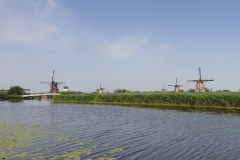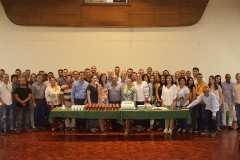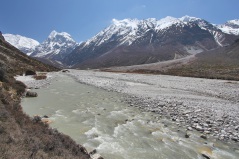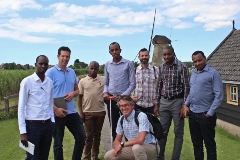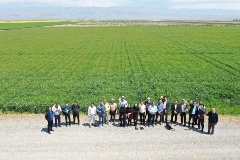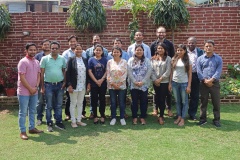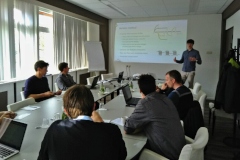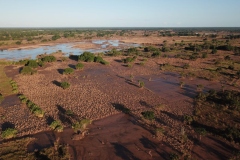Author: Martijn
2 August 2019
Modelling training provided to representatives from Madagascar
Futurewater has organized a two-week workshop (from 16 to 30 July) to provide hands-on training in relation to a modelling platform (LANDSIM-R) developed part of its activities undertaken for the LAUREL project. The prototype focuses on simulating hydrological and erosion processes at the regional scale and is provided as a toolbox grouping input data and...
11 July 2019
HERMANA launched for sustainable water management in Colombia
Press release The Valle del Cauca, in the western part of Colombia, is the country’s third-largest economy. The valley does have a lot of surface water and groundwater available, but sustainable use of these water resources is frequently under strain. Sugar cane is an important source of income. It is also a crop type that...
9 July 2019
Millions of farmers depend on meltwater from Himalaya glaciers
Last month new research showed that in the past 20 years, glaciers in the Himalaya were melting at a higher rate than in years before. Crop production and livelihoods of around 129 million farmers depend on meltwater from these glaciers. This is shown by an international group of researchers, including FutureWater team members, in a...
5 July 2019
Rwandese experts visit the Netherlands for a training on water management
This week a team of experts from the Rwandese government visited the Netherlands to learn from the Dutch water authorities about their experience on water management. The focus was on peat dikes, as this mission was embedded in a joint effort of the Rwandese and Dutch government to improve the flood safety and water security...
4 June 2019
SMART-WADI project: Drone images for farms in Iran
FutureWater travelled to Mashhad, Iran to undertake a series of key activities related to the SMART-WADI project (SMART Water Decisions for Iran) with the main goal of testing drone flights and imagery recovery from agricultural fields. The SMART-WADI project (SMART Water Decisions for Iran), carried out by a consortium of FutureWater, IHE-Delft, and local partner...
1 June 2019
Publication on quantifying services of natural and built infrastructure in the context of climate change
The International Water Management Institute (IWMI) together with FutureWater and other partners have published a report that presents findings from a study conducted to explore the synergies and trade-offs between built (i.e., engineered) and natural (i.e., ecological systems) infrastructure in the Tana River Basin, Kenya. The study considered hydrological, ecological and economic processes in order...
17 May 2019
Use of open source platform for hydrological modelling of data sparse region in Nepal
Flooding has always been a major cause of natural disasters in a mountainous country like Nepal. Among the many natural disasters that affect Nepal, the recurring floods during the monsoon season have catastrophic consequences every year. Nepal’s fragile geological conditions and complex topography combined with frequently occurring extreme rainfall during the monsoon poses risks to...
26 April 2019
First SPHY-model User Day organized
On 18 March FutureWater organized the first SPHY-model User Day for core developers and users of the SPHY-model. Ten core developers and users from FutureWater, Utrecht University, Wageningen University & Research and CEBAS Spain gathered at the Wageningen International Congress Centre to discuss the upcoming new release of SPHY and the way forward for effective...
1 April 2019
TWIGA Blog: Added value of Flying Sensors: irrigation advice to pineapple farmers
In November 2018, just after the TWIGA days in Kumasi, Ghana, FutureWater, together with partners Hiview and Farmerline, conducted a pilot study using flying sensors (drones) to enhance irrigation water productivity and yields of pineapple farmers. Pineapple is a key economic resource in Ghana, but pineapple yields generally remain low. Yield losses occur due to...
25 March 2019
Drones used to aid emergency efforts in Mozambique during the aftermath of Cyclone Idai
On 15 March 2019 Cyclone Idai hit the coast of Mozambique causing devastating damage and severe flooding in the region. The APSAN-Vale project, which is implemented in the Beira Agricultural Growth Corridor of Mozambique, is working closely with rural farming communities in the region affected by Cyclone Idai. The project team are searching ways to...
